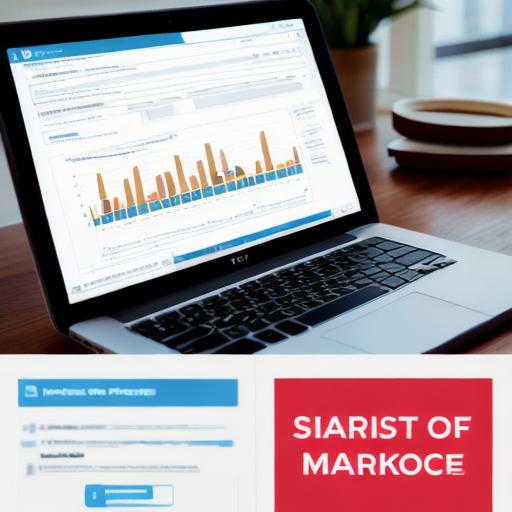Developing a successful marketing strategy can seem like a daunting task, especially if you’re new to marketing or if your business is in a highly competitive industry. However, by asking the right questions, you can clarify your objectives and develop a plan that will help your business grow. In this article, we’ll explore some of the most important marketing questions to ask when developing a strategy.
- Who is Your Target Audience?
Before you start developing your marketing plan, it’s essential to know who your target audience is. This information will help you tailor your message and choose the right channels to reach your customers. To determine your target audience, ask yourself questions like:
- What are the demographic characteristics of my ideal customer? (e.g., age, gender, income, education level, etc.)
- What are their interests, pain points, and motivations?
- Where do they spend their time online? (e.g., social media platforms, blogs, websites, etc.)
- Which channels do they use to make purchasing decisions? (e.g., email marketing, search engines, word-of-mouth recommendations, etc.)
Once you have a clear understanding of your target audience, you can create buyer personas that represent your ideal customers. These personas will help guide your content creation and outreach efforts and ensure that you’re speaking to the right people.
- What is Your Unique Selling Proposition?
Your unique selling proposition (USP) is what sets your business apart from your competitors. It’s the reason why someone should choose your product or service over another company’s. To determine your USP, ask yourself questions like:
- What problem does my business solve for customers?
- How is my product or service different from those of my competitors?
- What are the benefits of choosing my business over others?
- Why should someone trust me and my brand?
Your USP should be communicated clearly in your marketing materials and messaging. By focusing on what makes you unique, you can attract more customers and stand out in a crowded marketplace.
- What is Your Marketing Goal?
A marketing goal is the specific objective that you want to achieve through your marketing efforts. It should be specific, measurable, attainable, relevant, and time-bound (SMART). Examples of marketing goals include increasing website traffic, generating leads, boosting sales, and building brand awareness.
To determine your marketing goal, ask yourself questions like:
- What do you want to achieve through your marketing efforts?
- How will you measure success?
- Is your goal realistic and attainable?
- What is the timeline for achieving your goal?
Once you have a clear marketing goal in mind, you can develop a plan to reach it. This may include setting specific targets, creating content that resonates with your audience, or launching targeted campaigns.
- What Marketing Channels Should You Use?
There are many different marketing channels available, including social media platforms, email marketing, search engines, and print advertising. The best channels for your business will depend on your target audience, USP, and marketing goals.
To determine the right marketing channels for your business, ask yourself questions like:
- What channels does my target audience use most?
- Which channels are most effective for reaching my USP?
- What is my budget for marketing?
- How much time do I have to devote to marketing efforts?
By considering these factors, you can create a marketing plan that includes the channels that will be most effective for your business.
- What Content Will You Create?
Content is a crucial part of any marketing strategy. It helps establish your brand, attract new customers, and engage with your audience. To determine the content you should create, ask yourself questions like:
- What types of content will resonate with my target audience? (e.g., blog posts, videos, infographics, etc.)
- How often do I want to create content?
- Will my content be informative, educational, or entertaining?
- How will I measure the success of my content?
Once you have a clear understanding of the type of content that will work best for your business, you can start creating it. This may include developing a blog, creating videos, or designing infographics.
Case Studies and Personal Experiences
One of the best ways to understand marketing is through case studies and personal experiences. By learning from others’ successes and failures, you can develop a better understanding of what works and what doesn’t. Here are some examples:
- Dollar Shave Club’s Viral Video
Dollar Shave Club’s viral video "The Man Your Man Could Smell Like" became an overnight sensation in 2012, with over 12 million views on YouTube within the first 24 hours. The video was funny, creative, and relatable, resonating with men who were tired of traditional razor ads.
By focusing on humor and creating content that was both informative and entertaining, Dollar Shave Club was able to generate buzz and build brand awareness quickly. This success can be attributed to their ability to answer some of the most important marketing questions, including:
- Who is their target audience? (men)
- What is their USP? (funny, creative content)
- What marketing channels should they use? (social media platforms)
- What is their marketing goal? (building brand awareness)
- Airbnb’s Personalized Experiences
Airbnb has built its business on the idea of creating personalized experiences for travelers. By offering unique accommodations and local experiences, Airbnb has been able to differentiate itself from traditional hotels and attract a loyal customer base.
This success can be attributed to Airbnb’s ability to answer some of the most important marketing questions, including:
- Who is their target audience? (travelers)
- What is their USP? (unique, personalized experiences)
- Which marketing channels should they use? (social media platforms, influencer partnerships)

- What is their marketing goal? (building brand loyalty)
- Zappos’ Customer Service
Zappos has built its business on exceptional customer service. By providing free and fast shipping, easy returns, and a dedicated customer support team, Zappos has been able to create loyal customers who keep coming back for more.
This success can be attributed to Zappos’ ability to answer some of the most important marketing questions, including:
- Who is their target audience? (fashion-conscious consumers)
- What is their USP? (exceptional customer service)
- Which marketing channels should they use? (email marketing, social media platforms)
- What is their marketing goal? (building brand loyalty)
Research and Experiments
In addition to case studies and personal experiences, research and experiments can help guide your marketing efforts. By conducting surveys, analyzing data, and testing different strategies, you can refine your approach and achieve better results. Here are some examples:
- A/B Testing
A/B testing involves creating two versions of a webpage or ad and comparing the performance of each to see which performs better. This technique is often used in email marketing campaigns and social media advertising to optimize content and improve conversion rates.
By conducting A/B tests, you can answer some of the most important marketing questions, including:
- Which version of my webpage or ad will generate more clicks?
- What headline or call-to-action will result in more conversions?
- How can I improve my email open rates?
- Google Analytics

- Google Analytics
Google Analytics is a powerful tool that allows you to track website traffic, conversion rates, and other key metrics. By analyzing this data, you can gain insights into your target audience’s behavior and adjust your marketing strategy accordingly.
By using Google Analytics, you can answer some of the most important marketing questions, including:
- Which pages on my website are generating the most traffic?
- How long are visitors staying on my website?
- What keywords are driving the most traffic to my site?
- How many conversions am I generating from my website?
Summary
Marketing is a complex process that requires careful planning and execution. By answering some of the most important marketing questions, including who your target audience is, what your USP is, which channels will be most effective, and what your marketing goal is, you can develop a strategy that will help your business succeed. Whether you’re launching a new product or growing an existing business, by following these tips, you can create a successful marketing campaign that resonates with your audience and achieves your desired results.




